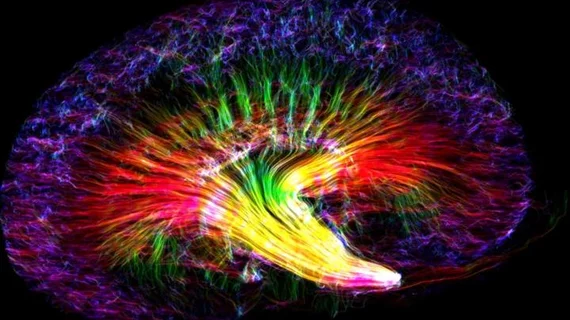‘Stunning’ mouse kidney diffusion tensor MRI wins photo competition
A diffusion tensor MR image (DTI-MRI) of a mouse kidney won the second annual “research in progress photo competition” held by BMC, the scientific publishing company formerly known as BioMed Central, according to a recent press release.
The winning image, entitled “Kidney Rainbow”, was selected from 373 entries and acquired by Nian Wang, PhD, assistant professor of radiology at the Center for In Vivo Microcopy at Duke University.
The image depicts a mouse kidney at a 10-micron isotrpoic resolution and shows bright neon colors representing the orientation of different tubules in the organ, which collect filtrate from blood passing through the kidney and process it into urine.
“The non-destructive nature of MRI and its ability to assess the renal microstructure in 3D make it a promising tool to understand the complex structures of the renal system,” Wang said in the prepared statement.
The runner-up was a three-dimesntional (3D) reconstructed image of brain circuitry structure—including the nervous system, muscles, cuticles and visual sensory system—in a common fruit fly using synchrotron x-ray tomography, according to the release.
"The as yet unseen detail and striking colors in this image very much appealed to our judges,” said Rachel Burley, publishing director at BMC and SpringerOpen. “For us, it demonstrates the ability of science and research to offer new perspectives on aspects of life that are familiar to everyone but whose details are still being explored, leading to fascinating new discoveries."

